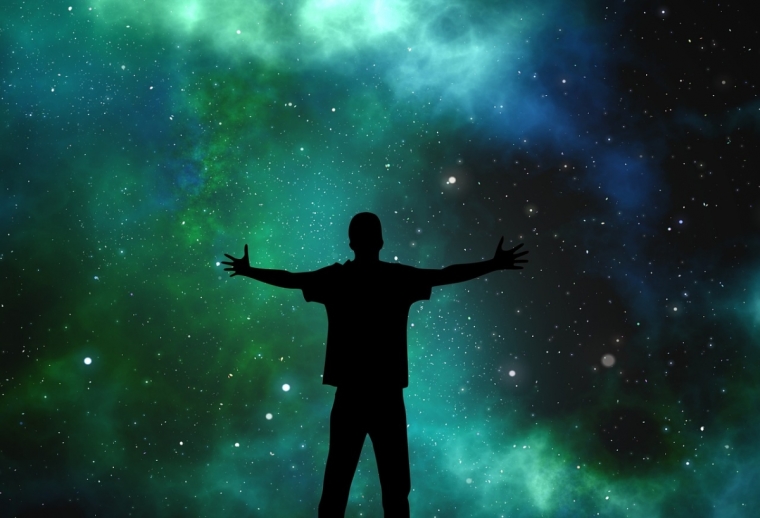

Well may you ask 'What's the connection between God and a Teapot?' Stay with me, while I'll explain the connection. This could be heavy going for some but if you read over it, I'm sure you'll get it.
You see, both Christians and Atheists deal with the Big Question 'Is there a God?' but come to opposite conclusions. The (very) last century, philosopher Bertrand Russell (1872-1970), frustrated by theologians dogmatic insistence on the existence of God, proposed countervailing argument by using the analogy of a 'Celestial Teapot'.
He mischievously contended that there was a teapot orbiting the sun, somewhere between the Earth and Mars (This could be true but, it's unverifiable). Then challenged Christians to prove that there wasn't.
You can see that Russell is arguing that the burden of proof for an unverifiable assertion lies with those who make it, and it's not the responsibility of those who contest the assertion to prove that it's false.
So when asserting the existence of God as a fact, Russell would maintain that it's up to Christians to prove that He exists, and not the Atheists to prove that he doesn't. And until Christians prove that God exists the assumption that he doesn't, remains valid.
Bayes' Theorem –Where Maths and Theology Meet

Now if you've found it hard going to this point, then hold onto your hat. It's going to get worse before it gets better.
Bayes was into probability. His theorem goes something like this; if we've reason to believe from experience that something (a proposition) is highly likely, then only weak evidence is needed to accept it as likely, or true.
If however, on the other hand, we've little reason, based on experience to believe the proposition is likely, then heaps of evidence is needed to convince us that it's likely to be true. Apart from a stupendous universe and the marvel of life itself, which they contend are an accident, there's little evidence for God's existence. (How convenient it is to make the rules)
As you can see, an Atheist would say there's not much likelihood for a teapot in outer space, and similarly for the existence of God. Therefore, Christians need to provide heaps of evidence to prove God's existence, because it's unlikely.
Russell and Bayes – Children of Their Times.
To be fair to the Atheists of the last century, their case wasn't entirely unreasonable. After all Christians didn't have a lot of evidence to offer, to prove the existence of God.
However, great strides in Science have been made in recent decades, from which strong, credible evidence has emerged supporting the notion of intelligent design, which points to a Creator, and perhaps God.
Let's look at what has unfolded in the last 60 years. Carl Sagan and others (all of whom contend life and the universe happened by accident) declared that only two conditions were necessary for a planet to support life. These are the right kind of star and a planet at the right distance from it.
Using these two parameters Sagan estimated that 0.001 of all stars in the universe would have a planet which could support life. Taking in account the vastness of the universe, he concludes that there were countless number of planets which could support life.
Let the Search for ET Begin
As a result the SETI program was launched, the Search for Extraterrestrial Intelligence. Well! Guess what? They're still looking, not even scant hint of life out there in space has been found.
The reason for their failure is that Scientists now realize that there are more conditions, which need to be met, than just two. As the number of conditions grew, the odds of finding life elsewhere in the universe dwindled, to none.
At the last count the number of conditions had exceeded 150, and the chance of finding life in the universe is down to zero. Pushing the point further, when taking into account all these conditions, statically and scientifically life should not exist anywhere in the universe. Consequently, our existence on planet Earth is nothing short of a miracle. (Why haven't the media told us about this – I guess they're busy).
The Finely Tuned Universe – Russell and Bayes Please Weep
There's no time to do all 150 + parameters that are needed to support life. I'll just list three (before I do so, I'd like to acknowledge Eric Metaxas' book 'Miracles', the source of this information). Please remember all 150 must be met, if only 149 are satisfied, then it's game over, good bye planet Earth.
- Size Matters Folks: The size or mass of the planet is crucial to supporting life. Any larger or smaller we'd perish. If Earth were larger, with more gravity, methane & ammonia gas would sink to the Earth's surface, and we'd choke on toxic gases. Any smaller, we'd have less gravity causing the water on the planet to turn vapor and dissipate into the atmosphere.
- Spin Speed:It takes 24 hours for the Earth to do one rotation. You may wish you had more hours in the day, but if that happened we're dead. Slower rotation would result in freezing nights and sizzling heat during the day, which would wipe out the planet's crops and forests. Oh nothing to eat.

- By Jupiter: Our solar system just happens to have the planet Jupiter which has 318 x times the mass of Earth and it happens to be at just the right distance from us, to act as gigantic gravitational magnet, which sucks into its orbit the asteroids heading our way. Without it we'd need to look up before we leave home in the morning, to avoid being hit.
As the Agnostic and Physicist Robert Jastrow states 'For the Scientist who's lived by faith in the power of reason, the story ends like a bad dream. He's scaled the mountains of ignorance, conquered its highest peaks, as he pulls himself over the final rock, he greeted by a group of Theologians, who ask 'What took you so long'?
Vic Matthews, has three degrees B.Optom, B.Arts& B. Christian Studies. He is a kiteboard tragic, who now works as a Christian Copywriter. He can be found at http://trustworthycopywriter.com/writing-services/christian-copywriter/
Vic Matthews' previous articles may be viewed http://www.pressserviceinternational.org/vic-matthews.html